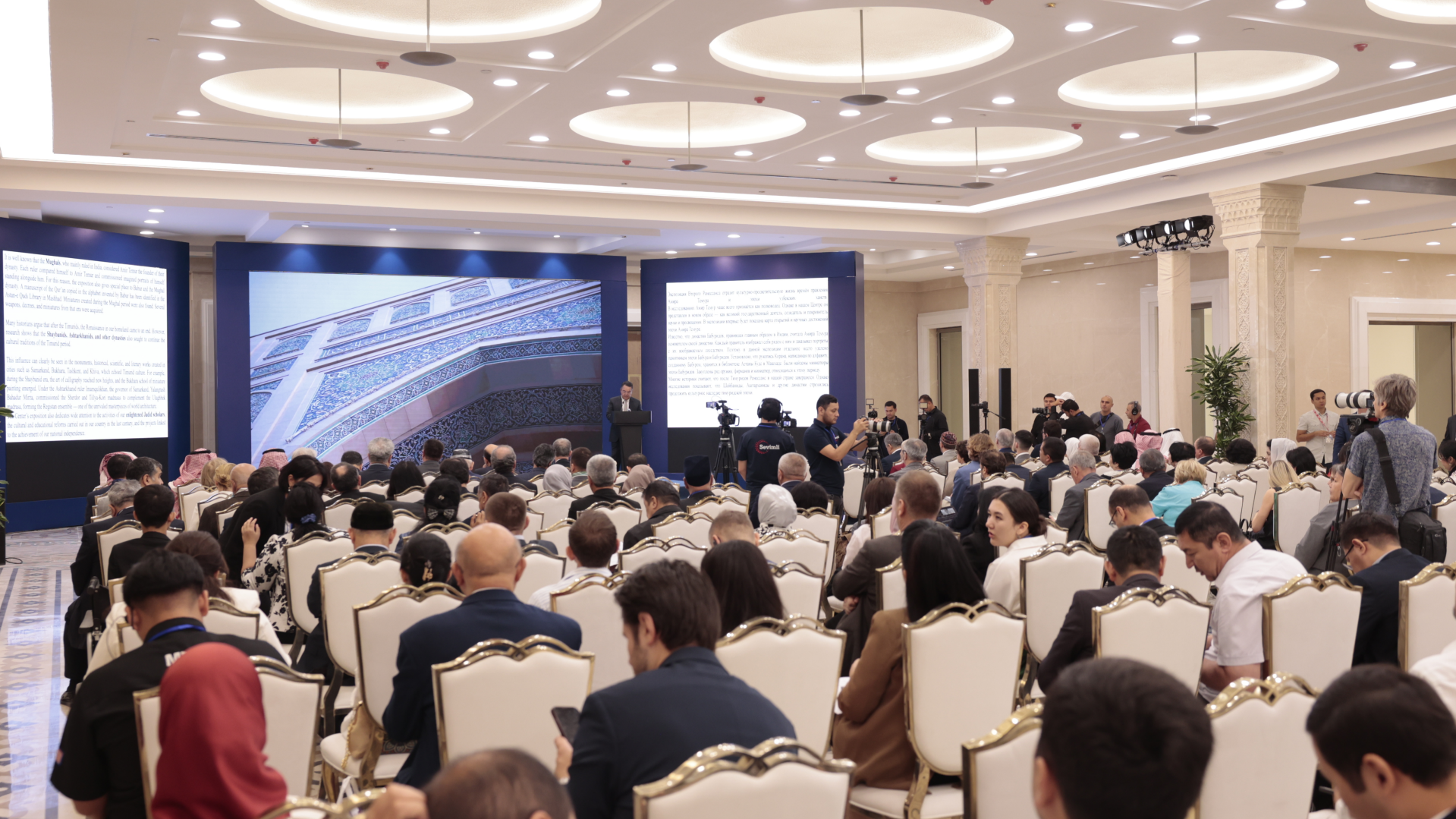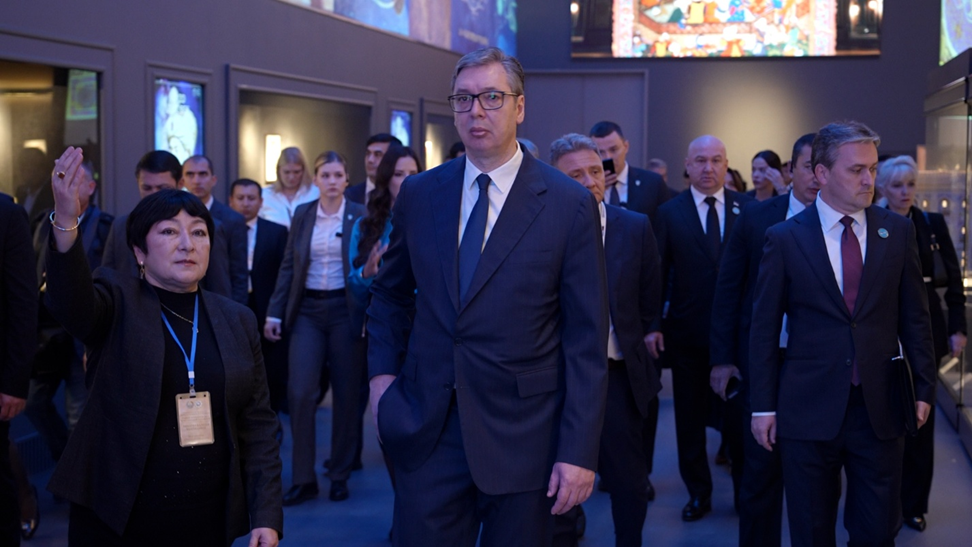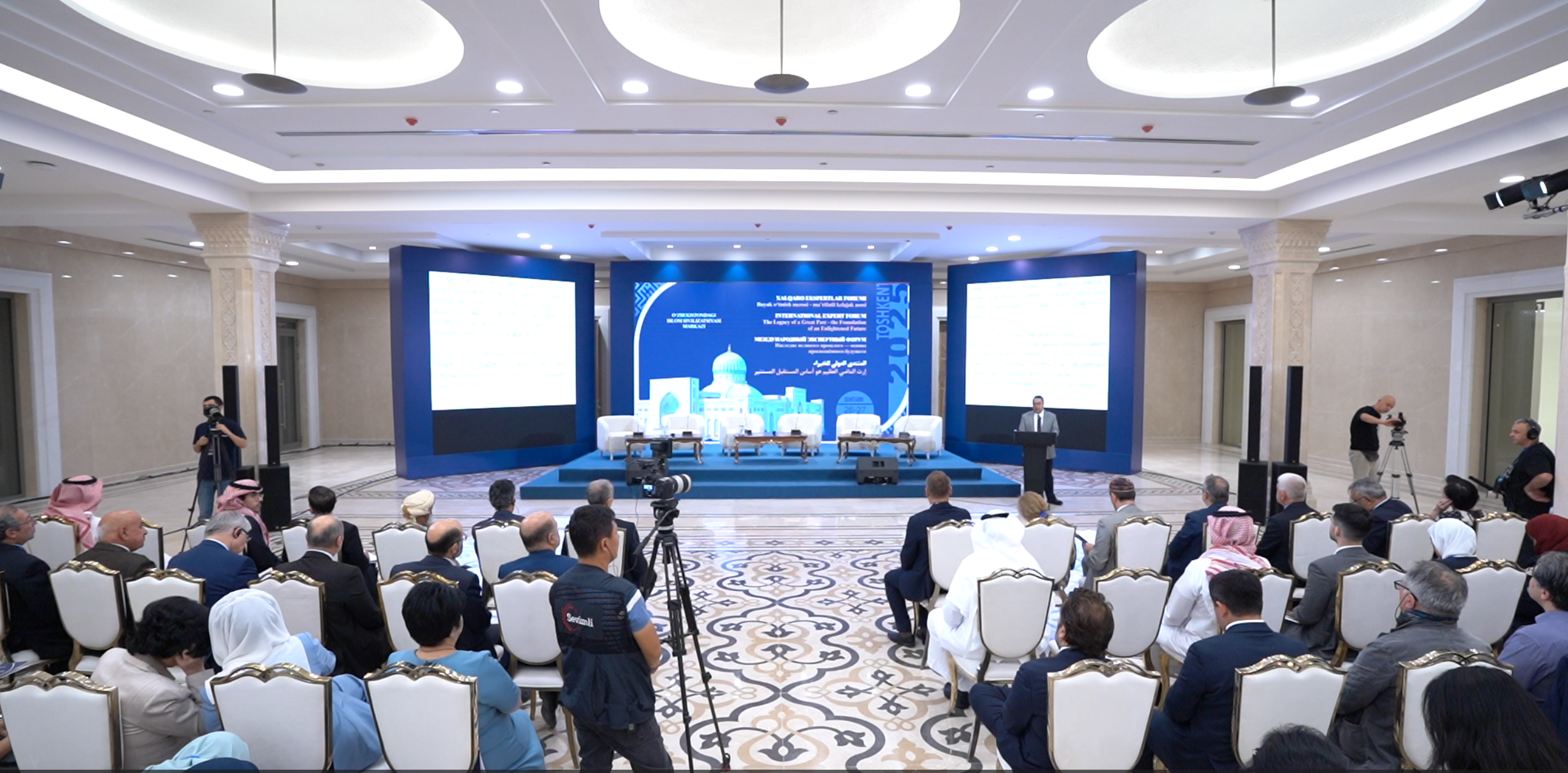Atayi’s literary heritage will be promoted
🔴 What is a “shohbayt”?
🔴 During which dynasty did Atayi live?
🔴 Who has studied Atayi’s works?
 There are poets whose divans remain unknown, and there are poets who become famous with a single verse. In classical literary studies, such verses are called “shohbayt” (master couplets). Atayi is recognized as one of such poets. The following couplet of his is considered among the “shohbayts” that brought him fame among the people:
There are poets whose divans remain unknown, and there are poets who become famous with a single verse. In classical literary studies, such verses are called “shohbayt” (master couplets). Atayi is recognized as one of such poets. The following couplet of his is considered among the “shohbayts” that brought him fame among the people:
That beloved who sits on the edge of the water,
Is so delicate that the water might swallow her whole.
(You can find the original verses in the Uzbek language version)
One of the prominent representatives of pre-Navoi Turkic literature and a master of Uzbek ghazal poetry, Atayi lived and created in the second half of the 14th century and the first half of the 15th century. As a descendant of the Yasavi sheikhs, he was called Shaykhzada Atayi. Through one or two generations, his lineage directly connects to “the shaykh of shaykhs of the land of Turkestan”, Khoja Ahmad Yasavi. Almost nothing is known about the poet’s biography: the date and place of his birth, the cities where he lived, and even his real name remain unknown.
A single divan of 260 ghazals by Mavlono Atayi has survived to our time and is currently kept in the Oriental Manuscripts Department of the Institute of Oriental Studies in Saint Petersburg. In his tazkira Majolis un-nafois, Alisher Navoi writes: “Mavlono Atayi lived in Balkh. He was one of the descendants of Ismail Ata, a dervish-like and good-natured, open-hearted man. He spoke in Turkic. In his time, his poetry was very famous among the Turks… Mavlono often spoke in Turkic… His grave is in the vicinity of Balkh”. In Muhokamat al-lughatayn, he respectfully mentions Atayi alongside other Turkic poets who appeared from the time the country came under the rule of the Turkic sultans, starting from Hulagu Khan and the bow of Sahibkiran Amir Temur to the end of the reign of his son, Shahrukh Mirza such as Sakkoki, Haydar Khorezmi, Muqimi, Yaqini, Amiri, and Gadoi. In the debate of “Arrow and Bow”, Yaqini also cites one of Atayi’s couplets as an example.
The scholar who discovered Atayi’s divan and made it known to the public was the renowned orientalist A.N. Samoylovich. In 1927, he wrote an article titled The Chagatai Poet Atayi of the 15th Century, in which he published 17 of the poet’s ghazals. After that, interest in the poet’s works grew significantly. Scholars such as Abdurauf Fitrat, Ghafur Ghulom, Hodi Zarif, Ergash Rustamov, Oybek, Natan Mallaev, Erkin Ahmadkhojaev, Abduqodir Hayitmetov, Suyima Ghaniyeva, Ibrohim Haqqul, and Sayfiddin Rafiddin contributed to the study of the poet’s life and work and the publication of his works. According to our academic poet G‘afur G‘ulom, Atayi “was probably born somewhere in northern Turkestan (Chimkent, Sayram, Turkestan, Iqan, Otrar), and later, in search of knowledge, went to our ancient capital Herat, where he settled permanently. He lived and created during the reigns of Shahrukh and Ulughbek… The exceptional clarity of Uzbek identity in his words recalls the dialect of the northern Turkestan Uzbeks. Out of his 260 lyrical ghazals, 109 are written in the meters of folk songs that match the aruz meters. Linguistically, his works were strongly influenced by the poet Ahmad Yasavi”.
Atayi was not only a poet but also an enlightener, promoting the idea of purifying the human soul and advancing through goodness and knowledge in his work. Today, Atayi’s legacy is studied as a valuable scientific and cultural heritage in the process of reviving spirituality and national identity.
Through the media project Atayi’s Literary Heritage, implemented by the Center of Islamic Civilization, the poet’s work is intended to be presented to the public, especially to the younger generation.
Most read

Over 100 experts from more than 20 countries of the world are in Tashkent!

President of Serbia Aleksandar Vučić visited the Islamic Civilization Center in Uzbekistan

The Center for Islamic Civilization – a global platform leading towards enlightenment











